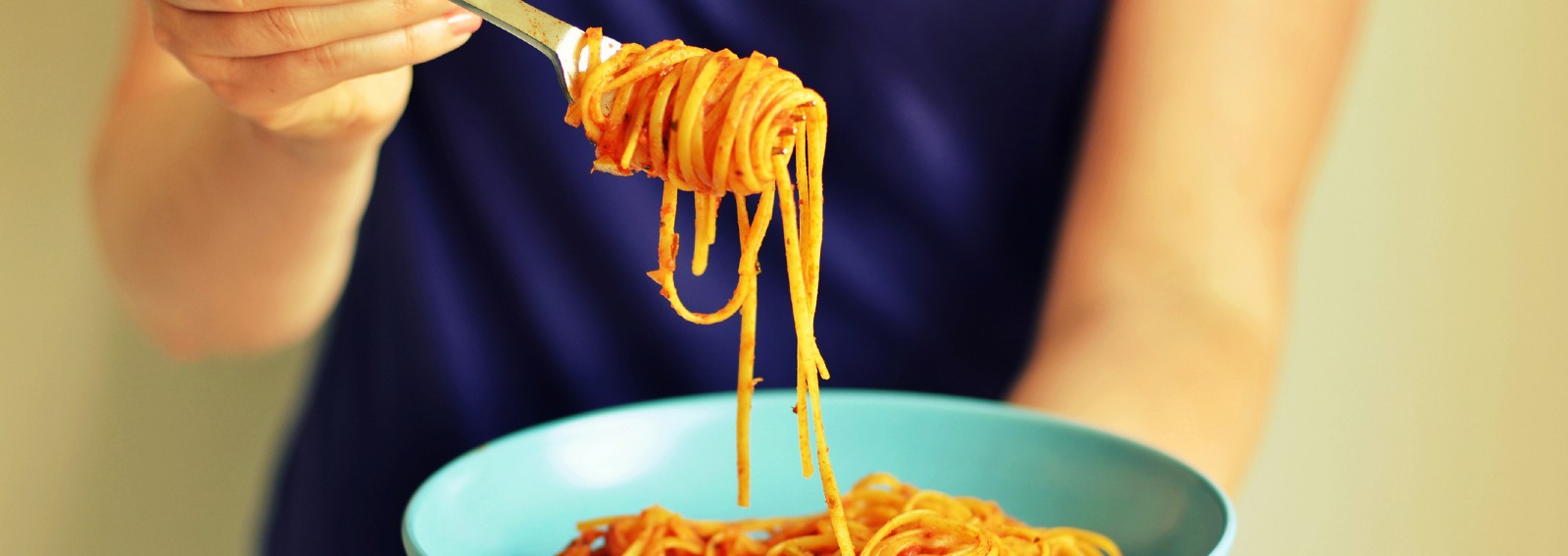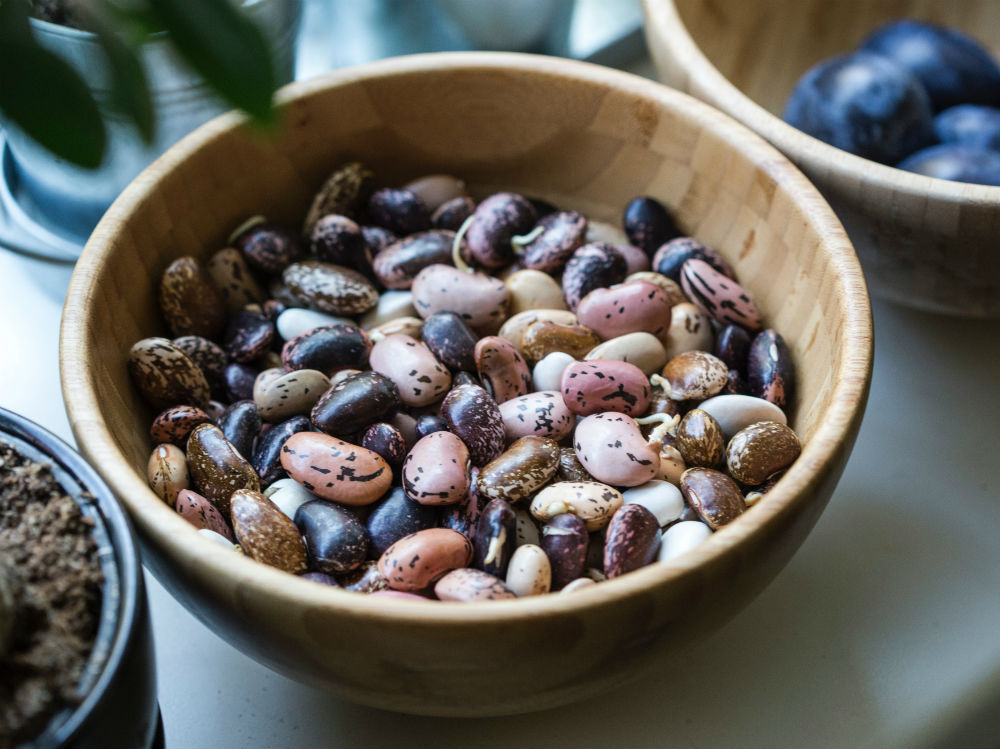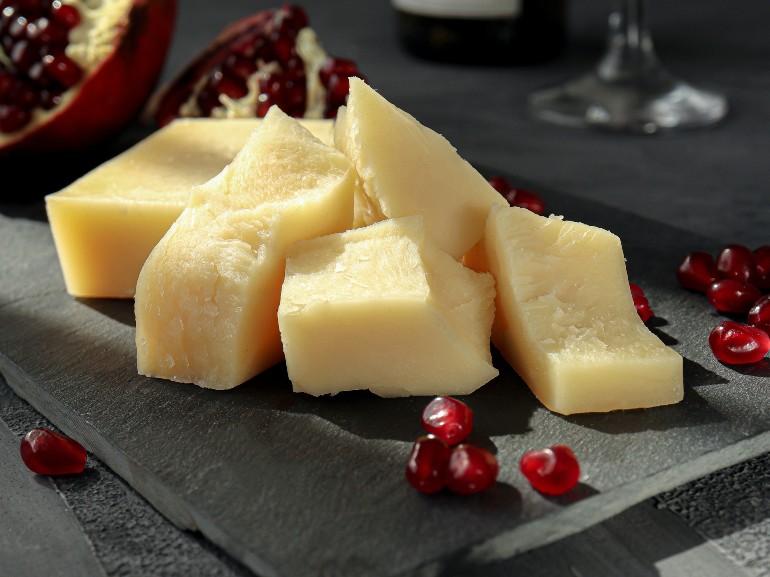
 Although bloating is often temporary, it can be quite bothersome, especially when it becomes a recurring issue.
Although bloating is often temporary, it can be quite bothersome, especially when it becomes a recurring issue.
The causes of this discomfort can vary, but some of the most common are the foods we consume. Some foods, due to their chemical and nutritional characteristics, tend to create gas in the intestines, increasing the feeling of bloating.
Let’s take a look at the most common bloating foods and, most importantly, how we can replace them to avoid the uncomfortable bloating in the belly.
Bloating and Difficulty Losing Weight? It Could Be Due to Stress

1. Lentils and Quinoa Instead of Beans
Beans are known for being rich in fiber and protein, but they are often blamed for causing bloating. This happens because beans contain oligosaccharides, complex sugars that our body struggles to digest. During digestion, these sugars are fermented by intestinal bacteria, producing gas.
Some studies suggest that regular consumption of beans can improve digestion in the long run, as our intestines adapt to these foods. However, those who suffer from bloating should opt for lighter alternatives, such as lentils, quinoa, or brown rice. Additionally, soaking beans before cooking can reduce gas production.
2. Brown Rice and Oats Instead of Wheat
Wheat, particularly the gluten it contains, causes stomach bloating in many people, especially those with gluten sensitivity. The bloating in these cases is due to an inflammatory reaction in the body, leading to slower and more problematic digestion.
Celiac disease, a condition affecting about 1% of the population, is just one cause of this intolerance. For those who are not celiac but still experience bloating, there are alternatives to wheat, such as brown rice, buckwheat, quinoa, or even oats. In addition to reducing bloating, these grains are rich in fiber and nutrients.
3. Gluten-Free Cereals Instead of Rye and Barley
Rye and barley, similar to wheat, are cereals that can cause bloating due to their high gluten and fiber content. While they are excellent sources of nutrients, these cereals can cause slower digestion in some people, resulting in bloating.
If you notice that rye bread or barley-based dishes cause discomfort, you can replace them with gluten-free cereals such as brown rice, certified gluten-free oats, or pseudocereals like quinoa and buckwheat, which are easier to digest.
4. Zucchini and Spinach Instead of Cruciferous Vegetables
Cruciferous vegetables, such as cauliflower, broccoli, Brussels sprouts, and kale, are healthy foods rich in fiber and vitamins, but they can be hard to digest. The soluble fibers and sugars they contain can ferment in the intestines, causing bloating.
To reduce bloating, it is advisable to cook these vegetables, as cooking makes them easier to digest. Alternatively, you can replace them with other nutrient-rich but lighter vegetables, such as zucchini, spinach, asparagus, and carrots.
5. Aromatic Herbs Instead of Onions and Garlic
Onions and garlic are widely used ingredients in cooking but can be a cause of bloating due to the fructans, complex carbohydrates that ferment in the intestines, producing gas. Even small amounts of these foods can cause abdominal discomfort.
If you are particularly sensitive to onions and garlic, try replacing them with aromatic herbs such as rosemary, oregano, or chives. Additionally, fennel and leeks are great alternatives that can enhance the flavor of dishes without causing bloating.

6. Citrus Fruits and Berries Instead of Apples and Pears
Apples and pears are fruits rich in fiber and vitamins, but they also contain fructose and sorbitol, sugars that many people find difficult to digest. The result is often uncomfortable bloating.
If these fruits cause you trouble, try cooking them, as cooking makes the sugars in them more digestible. Alternatively, you can replace apples and pears with less problematic fruits like bananas, citrus fruits, strawberries, and blueberries, which are less likely to cause fermentation in the intestines.
7. Lactose-Free or Aged Cheeses Instead of Regular Dairy Products
Many people are lactose intolerant, meaning they can’t properly digest the sugar found in dairy products, which can cause bloating, gas, and abdominal cramps. Lactose intolerance is a disorder affecting a large portion of the global population, often undiagnosed.
If you notice that milk, cheese, and yogurt cause you bloating and digestive problems, you can try lactose-free alternatives, such as almond milk, soy milk, or rice milk. Also, some aged cheeses and probiotics are better tolerated as they contain less lactose.
8. Natural Sweeteners Instead of Artificial Ones
Non-nutritive sweeteners, such as sorbitol and xylitol, are used to replace sugar in many “light” drinks and foods. However, as some studies confirm, these sweeteners can cause bloating because they are hard to digest and ferment in the intestines.
To avoid these side effects, you can opt for natural sweeteners like stevia, honey, or coconut sugar, which are gentler on the digestive system and don’t cause the same intestinal reaction.
9. Tea and Infusions Instead of Alcohol
Although a glass of wine or beer may seem like a good companion, alcohol can be a major trigger for bloating. This is because alcohol is an inflammatory substance that can irritate the gastrointestinal tract.
As an alternative, to limit bloating but still enjoy a drink with friends, you can choose lighter alcoholic beverages such as distilled spirits or wine. Even better, replace alcohol with tea and infusions that not only hydrate but also promote good digestion.
10. Seltzer or Juices Instead of Carbonated Beverages
Carbonated drinks are among the main culprits of bloating. The carbon dioxide in sodas creates bubbles that enter the digestive tract, causing distension and bloating. Another consideration is that the consumption of carbonated beverages is often associated with other health problems, such as an increased risk of diabetes and obesity, as highlighted by various studies.
As an alternative, to enjoy the refreshing feeling, you can opt for natural or flavored water, seltzer with lemon or mint, or fresh fruit and vegetable juices. These drinks not only relieve bloating but are also rich in nutrients.
5 Vegetables to Eat for Debloating and Weight Loss
The Best Diet to Combat Bloating
This article first appeared on Grazia.it













